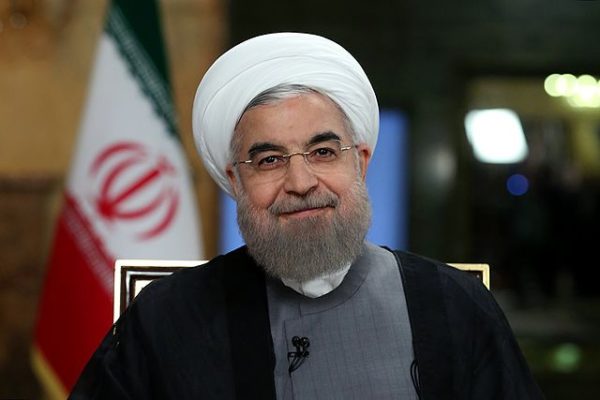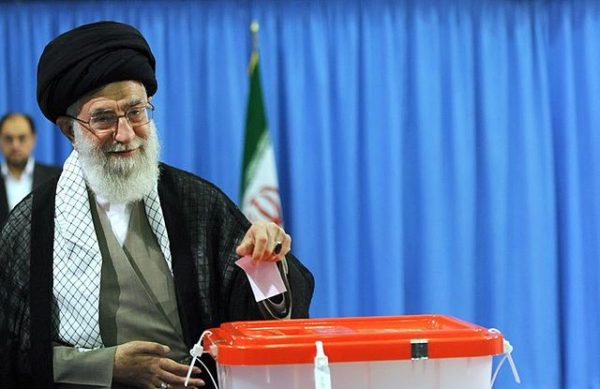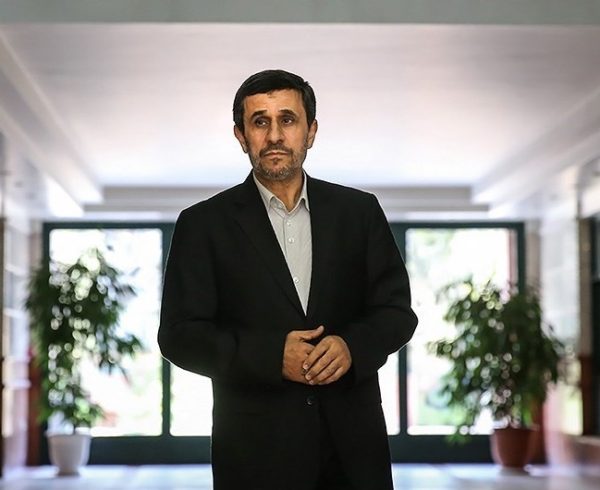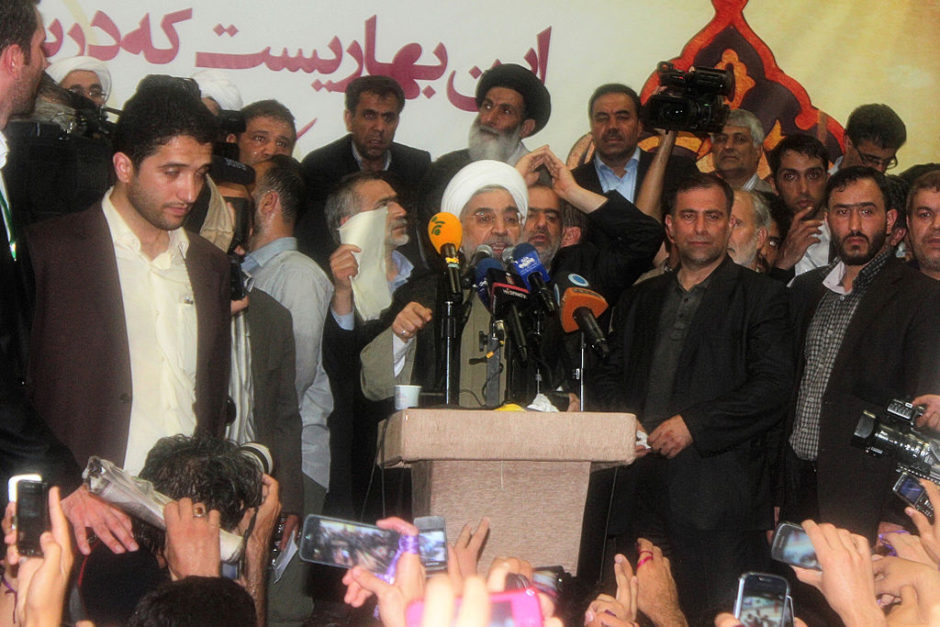In the lead-up to the May 19 presidential election in Iran, most observers maintained that the electorate would be focused on one main issue.
Did the lifting of economic sanctions on the part of the United States following the nuclear agreement signed by Tehran with the five members of the UN Security Council, plus Germany, in 2015 improve the economy sufficiently to have made the deal worth the cost?

Incumbent President Hassan Rouhani’s political fortunes would depend on the answer made by the millions of Iranians who had suffered under the restrictions. He ran in 2013 on a platform promising to reinvigorate the economy by forging the nuclear deal, ending or easing sanctions, and opening the country to foreign investment and ideas.
Rouhani’s main opponent, Ebrahim Raisi, a powerful conservative cleric, is remembered for his role in the 1988 massacre of over 30,000 political prisoners, mainly members and supporters of the Marxist opposition People’s Mojahedin Organization of Iran, or Mojahedin-e-Khalq.
Raisi accused Rouhani of capitulation to the U.S. in the nuclear negotiations, allowing the entry of Western consumer goods under the cover of economic liberalization, and of allowing the spread of Western culture in Iran.
He appealed primarily to poor and deeply religious Iranians, many of whom felt left out of Rouhani’s post-sanctions vision for the future.
In the end, Rouhani prevailed, winning 57 percent of the ballots cas and, soundly defeating his chief opponent, who received 38.5 percent. The turnout was more than 70 percent.
“You have put Iran back on the road to progress,” Rouhani told his voters after his victory. Clearly, Iranians have endorsed his economic and political plans, but are they working?
True, billions of dollars have poured into the country after the signing of the nuclear agreement. All manner of international businesses have been flocking in, eager to make deals.
Yet many middle-class Iranians are still frustrated by the years of high unemployment, inflation (which was above 40 percent when Rouhani was elected four years ago), declining living standards, and widespread corruption.
Prices are still rising by over seven percent a year and unemployment remains at 12.5 percent overall, and close to 30 percent for people under 25.
Ordinary Iranians also chafe over the fact that about 80 percent of the economy remains under state ownership, dominated by the powerful military, especially the Islamic Revolutionary Guard Corps, and the all-powerful Shia clergy. Both these groups have accumulated astronomical wealth.

As well, the Iranian clerical elite retain the final say, under Ayatollah Ali Khamenei, now in his 28th year as the country’s Supreme Leader, on Iran’s domestic politics and international relations.
The Islamic Republic’s hybrid democratic-theocratic constitution, with its checks and balances, on paper provides for a measure of popular sovereignty, yet the position of the Supreme Leader ensures that a theocrat is in ultimate control.
Candidates for all offices must prove their utter loyalty to the Supreme Leader. The unelected twelve-member Council of Guardians vets candidates for presidential and parliamentary elections. It also reviews all new laws to ensure they are properly “Islamic.”
“We are all merely facilitators of this regime,” Mohammad Khatami, the “moderate” president who served from 1997 to 2005, once remarked. The election will change none of this.
Misagh Parsa’s book, Democracy In Iran: Why it Failed and How it Might Succeed, published last November, traces the country’s increasing inequalities in wealth and income, corruption and cronyism, and a “brain drain” of highly educated professionals.
But the hard-liners will not give up real power easily and have managed to quash pro-democracy activism at every turn since 1979, especially during the violence that erupted during the 2009 election that allowed extremist Mahmoud Ahmadinejad to remain president.

Khamenei has veto power over all policies, while Rouhani has been unable to even secure the release of reformists from house arrest.
The Islamic Republic will, in the next few years, face a more important struggle, that of who will succeed the 77-year-old and ailing Khamenei. This will not be resolved at the ballot box and, in fact, Raisi, as a major religious figure, remains a potential successor to Khamenei.
Parsa, a sociology professor at Dartmouth College, concludes that “the failure of the Islamic Revolution to fulfill (its) promises, the imposition of social and cultural restrictions, and the denial of political rights and civil liberties has set the stage for contentious politics in Iran.”
When it comes to Israel and Jews, Rouhani’s more “moderate” approach has been seen as a contrast to Ahmadinejad, his often acrimonious and bizarre predecessor who delighted in being a provocateur.
He made light of the Holocaust, at times calling it a Jewish lie and denying it had occurred. “They launched the myth of the Holocaust,” Ahmadinejad said in a speech at a pro-Palestinian rally in Tehran marking “Jerusalem Day” on September 18, 2009.
Rouhani, on the other hand, not long after his 2013 victory, accepted that the Holocaust had taken place and called the Nazi genocide reprehensible and a crime. “Whatever criminality they committed against the Jews, we condemn,” he told CNN journalist Christiane Amanpour on September 24, 2013.
Ahmadinejad also periodically gloated at the prospect of Israel’s destruction, using inflammatory language that offended much of the world.
When he first came into office, Rouhani used similar, if less vitriolic, phrases. “The Zionist regime has been a wound on the body of the Islamic world for years and the wound should be removed,” Rouhani was quoted as saying by the semi-official ISNA news agency on August 2, 2013.
But in recent years Rouhani has been far more circumspect, even at times skating on thin ice and antagonizing the more hard-line anti-Zionists.
During an election debate on May 5, for example, Rouhani criticized the elite Iranian Revolutionary Guard Corps for the provocative anti-Israeli slogans, including “Death to Israel,” they wrote on ballistic missiles before testing them.
But lest someone think Rouhani has strayed too far from Iran’s policy towards Israel, they need look no further than his speech on February 22 in Tehran to the Sixth International Conference in Support of the Palestinian Intifada.
At that gathering, he raised the alarm over Israel’s attempts to normalize relations with Arab countries of the region. Israel, he warned, “has for the first time referred to certain Arab countries as its allies against the resistance front, instead of describing them as its enemies.”
He was, of course, referring to Sunni Arab fears of Shia Iranian-led military operations in Syria, Lebanon, Iraq and Yemen.
The Iranian president called on the countries of the region to remain vigilant in the face of what he called Israeli plots.
Those who think Rouhani’s victory will somehow mitigate the poisonous attitude Iran’s political elites take towards Israel are mistaken.
Henry Srebrnik is a professor of political science at the University of Prince Edward Island

